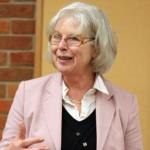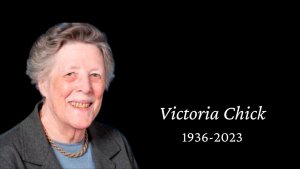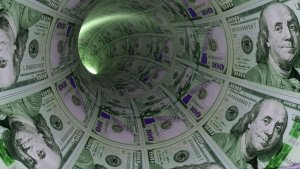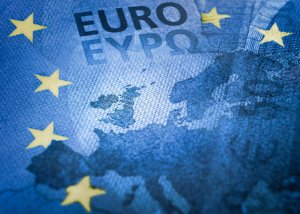As part of our ongoing symposium “Experts on Trial”, Professor Sheila Dow argues that if voters have grown contemptuous of economists’ expertise, that’s because economics has been misrepresented as a technical subject separate from politics and moral judgments
“People in this country have had enough of experts.” Thus the response of key ‘Brexit’ campaigner Michael Gove when confronted with the long list of expert bodies, such as the IMF, that were making the economic case for Britain to remain in the EU.
This is a shocking statement, particularly coming from a highly-educated former Minister of Education. As professional economists, we see ourselves as contributing to society precisely through our expertise. Yet, Gove was picking up on a trend in public discourse that gained further momentum during the US presidential election campaign, of disregarding expert opinion. Nor is it a transitory phenomenon. Empirical evidence of the gulf between expert and lay opinion on economic policy in the US has been provided by Sapienza and Zingales (2013), a gulf which was not affected when the lay subjects were made aware of expert opinion.
Out of the discourse on expertise have emerged two sequential characterisations of the zeitgeist: a “post-democratic” era which begat a “post-truth” era.
The “post-democratic” label described the trend for important policy decisions to be made on the basis of expert opinion rather than any democratic process. It refers to institutional arrangements that explicitly put executive power in the hands of experts, such as independent central banks and the European Fiscal Compact (see further Pühringer, forthcoming). The democratic deficit is further compounded by the extent to which policy-making institutions have been captured by vested interests (Morgan 2017). Seen in this light, some of the political developments of 2016 can be seen as attempts to reassert democracy.
But out of that effort has also arisen what is characterised as a “post-truth” era, implying that truth is popularly regarded as irrelevant to shaping the outcome of the democratic process. Assertions which “feel right” but have no basis in fact are accepted as valid on the grounds that they challenge the elite and its vested interests. Of course, this raises the question of what truth is, with a potential conflict between the understanding of experts and the understanding of the individual voter based on experience. Thus, for example, economists may claim that an economy is strong while individual experience is of economic vulnerability and hardship. If economic expertise is to contribute to policy debate, then the scope for different understandings needs to be addressed. But far from implying that any assertion is legitimate, this scope underlines the importance of justification of understanding, by reason and experience.
Where does this leave the economist as expert?
Gove (2016) elaborated further on why experts were being disregarded: they purport to “know what is best and get it consistently wrong”. Here we examine the validity of these claims. We focus particularly on forecasting, since that is what is popularly perceived to be “consistently wrong”. We consider the implications for the methodology and content of economic analysis, and the ways in which it is presented to policy-makers and to the public. This latter enquiry raises issues about the relationship between economic advice and the democratic process, issues which extend from the methodology and content of economics to institutional arrangements.
Economic Forecasting
A consistent refrain among participants rejecting opponents’ economic forecasts in Britain’s Brexit debates was that such forecasts are “consistently wrong”. For an economist, that is not in itself an effective argument against forecasting: Econometric forecasts are always expressed in terms of a confidence interval around a central forecast, so that these forecasts can only be expected to be right on average. Of greater concern is disturbing causes which are not random, but rather are significant developments assumed away by the forecasting model. Then outcomes will be consistently different from the central forecast in one direction or another, as when the government’s forecasts of improving public finances failed to materialise, resulting in increased fiscal austerity. With such tangible consequences of failed forecasts, the public’s patience wears thin. But the failure of mainstream models to forecast the crisis had already primed the public to fundamental weaknesses in economic forecasting, engendering distrust of economic experts.
So, is the answer simply that economists need to try harder?
For most economists, that is the answer. Caballero (2010), for example, identifies the problem with ‘core’ dynamic stochastic general equilibrium (DSGE) macroeconomic models, which sought quantitative precision without adequate real-world understanding. Yet, he sees hope in this approach drawing on what he terms “peripheral” analysis that reflects a better real-world understanding at the micro level, but which is primarily non-quantitative. “We need to rework the mechanism the core currently uses to go from insights derived in the periphery to quantitative general equilibrium ones.” (Caballero 2010: 98). Indeed much effort has been put into making the assumptions of DSGE models more realistic, but the fact remains that these models are by their nature incapable of predicting a crisis because of the way they are constricted to ensure settlement on equilibrium.
Some economists had predicted the crisis as imminent, though (consistent with Minsky’s (1982, 1986) financial instability hypothesis) not the precise trigger or its precise timing. But these forecasts were drowned out by the output of the main macroeconomic models used by policy makers and by the financial sector. Caballero (2010: 85) dismisses the matter as follows: “To be honest, this inability to predict does not concern me much. It is almost tautological that severe crises are essentially unpredictable, for otherwise they would not cause such a high degree of distress.” This attitude lends support to the view that general equilibrium theorising is satisfactory, except with respect to crises, regarded as aberrations. Greenspan (2009) argued that crises cannot be predicted, and central banks cannot diffuse bubbles anyway. So the best response is simply to establish preventative rules (such as capital requirements), but in such a way as to “enhance the effectiveness of competitive markets, not impede them”.
But, had they been taken seriously, the crisis predictions would have prepared the authorities not only to develop a more robust regulatory framework (as Minsky had advocated; see Kregel 2014), but also to be alert to the danger signs. That the predictions of crisis were not precise is in itself telling. The question is whether it is even feasible to expect a macroeconomic model to yield useful precise quantitative predictions — if not, then efforts to produce a better model are misdirected. As Lawson (2009) argues, it is in the nature of economies as complex, open, evolving systems to evade capture by any one formal mathematical model. Any model requires assumptions, so that the onus is on the modeller to examine each context in order to decide whether these assumptions are reasonable. The differences of opinion on policy between economic experts and the general public identified by the Sapienza and Zingales (2013) study came down to the latter’s greater willingness to question assumptions. At best, as Keynes had argued, any formal model can only be a partial argument, to be combined with other types of argument, and provisional in the face of the particular context of application (Carabelli and Cedrini 2014). More tellingly, Keynes argued that models should be aids to thought, not furnished with quantitative values (O’Donnell 1997).
When Friedman (1953) argued that the goal of economics should be prediction (on the basis of assumptions which might well be false) rather than explanation, he caused a furore. The predominant view among the mainstream then was that explanation, or at least good description, should instead be the primary goal. But Friedman’s position now dominates the mainstream. Of course policy-makers need guidance as to what to expect from implementing particular policy measures. But such forecasting requires understanding of causal mechanisms; since formal models are only partial arguments, they are not enough. Any particular context requires a theoretical account (of which a model may be one part) which is adapted to reflect the particular circumstances, and thus which assumptions are reasonable simplifications. By considering the various (at times countervailing) forces potentially at work, the expert economist can outline them and express a judgement as to their relative strength, justifying this judgement in relation to alternatives. In turn, judgements about alternative explanations for actual outcomes can be appraised using a wider range of mechanisms than simple comparison with a point forecast (Runde 1998).
The implication is that economists need to adopt a more pluralist methodology, drawing on different disciplines as well as different methods, where mathematical models form only a part. Otherwise, it will not be surprising if point forecasts continue to be wrong, and wrong systematically. GDP forecast errors may not unduly concern the general public since GDP is detached from personal experience. But there was widespread public scepticism when forecasts were made of precise changes in personal circumstances that would immediately follow a Brexit vote. Indeed, setting the goal as providing point forecasts based on single macroeconomic models is, itself, a substantial part of the problem.
A major hurdle is the presumption that economics should aim to be like the physical sciences, and that quantitative prediction is the hallmark of science. On the one hand, this philosophy of science has long been discredited and, in any case, the physical sciences are more complex than the version emulated by mainstream economics (Cartwright 1999). On the other hand, this view of the scientific method has led to mainstream economists ignoring methodological questions (Drakopoulos 2016). But the result has been on the one hand an unthinking insistence on formal mathematical modelling, and on the other an unsupported sense of self-confidence in economics as a scientific discipline. Mainstream economics has become an increasingly sophisticated technical subject, detached from considerations which cannot be fitted into the technical apparatus. Policy implications are typically drawn, but without reference to the complex network of assumptions which underpin the models in question.
Indeed, there is a range of alternative approaches to economics on which have been built critiques of the mainstream approach, and different ideas as to how to proceed such that economists would not “be consistently wrong”. But why have these alternatives not been known about, far less taken up, by policy makers? The mainstream answer would be that they are less scientific, but alternative answers lie in the sociology of the discipline. Non-mainstream economists have long pointed out the mechanisms by which non-mainstream research is actively discouraged (through hiring, publication and funding). This argument has lately been reinforced by two analyses which are influential on account of being produced outside conventional economics academia: the sociological analysis of Fourcade et al (2014) and the analysis of students of economics drawn from the millennial age cohort: Earle, Moran and Ward-Perkins (2016).
We have argued here that economic forecasts have often been wrong because of their undue reliance on formal mathematical models that could not take account of developments assumed away, and which were unreasonably focused on equilibrium outcomes. Forecasting could be done better, as indeed is the goal of mainstream modellers, but we have questioned the usefulness of the single-minded focus on models. But the failure of this approach was paired with the perceived habit of economists to “know what is best”. We turn now to examine this claim.
Economics and democracy
That economists “know best” follows from an understanding of economics as a specialist scientific discipline. Specialism in itself is no bad thing. Indeed, Adam Smith (1762-63: 347) first talked about the division of labour in terms of the development of ideas. But Smith (1759: III.2.20, VII.ii.4.14) also argued that, while mathematics and the physical sciences could proceed for long without public intervention because their subject matter was remote from personal experience, this was not the case for the social sciences. Smith anticipated that public discourse would ensure that social sciences remained grounded in experience. Yet, by aspiring to be scientific in the same way as the physical sciences and by privileging the mathematical method, economics has managed to a considerable extent to promote what Earle et al (2016: 9) call an “econocracy” — “a society in which political goals are defined in terms of their effect on the economy, which is believed to be a distinct system with its own logic that requires experts to manage it”. Now, however, that expertise is being publicly challenged.
The technical nature of mainstream economics is emphasised by its presentation as being value-free. To the extent that textbooks discuss such things, economics is presented in terms of positive analysis using “the scientific method”, with normative judgements left to policy-makers (see e.g. Mankiw and Taylor 2006). But the constrained optimisation framework has values embedded in it — whether acknowledged or not — such as the assumption that workers in a competitive environment are paid the value of their marginal product, i.e. what they are worth. Gains from trade is another value-laden topic which loomed large in the US presidential debate. Mainstream theory concludes that more trade is always beneficial in aggregate, but it does so on the assumption that the DSGE structure remains unchanged, i.e. that there have not been irreversible changes in structures, behaviour and the exercise of power. What gained most attention in political debate was the other more obviously value-laden mainstream assumption, that aggregate gains benefit society even if the winners don’t compensate the losers. There is no escaping the fact that economics continues to be a moral science. Economists therefore have a moral responsibility to be transparent about the value judgements embodied in their theories, and to be prepared to debate them. This would address any suspicion that economists were serving vested interests. But there is a more profound moral responsibility which arises from the nature of economic knowledge itself. Experience has shown that predictive success is an inadequate basis for appraising theories, such that different bodies of theory using different methodological approaches co-exist (even if most are discouraged by purveyors of the mainstream). This is particularly the case for a field whose subject matter is a complex, evolving, open system. Knowledge about the economy is uncertain, severely limiting the scope for classical logic. Drawing instead on a range of lines of reasoning and types of evidence, what is required of the economist is reasonable judgement. As Marcuzzo (2010: 45) points out, reasonableness is a moral quality which addresses the collective good rather than the personal benefit sought by individual rationality.
It is therefore immoral not only to conceal value judgements, but also to present as scientific truth a conclusion which is approach-specific. It is incumbent on all economists to be prepared to explain their approach and defend it relative to others. Economists, as experts, know better than those who do not make an in-depth study of the economy. But no one economist can claim to “know best” without imposing her own value judgments on society and without arguing why her approach to economic knowledge is better than alternatives.
For experts to impose value judgments on society is also undemocratic. If economics is thought of as a purely technical subject, then the problem does not arise. In fact, with the increasing prevalence of viewing economics as a technical subject there has been an increasing tendency to set up policy-making structures that separate economic policy from political processes. A case in point is central bank independence, whereby an unelected Governor (usually with an unelected committee) makes decisions on monetary policy that can have far-reaching consequences, e.g. for income distribution. As a result of the policy of quantitative easing, for example, holders of marketable assets gained a huge windfall from the liquidity injected into asset markets, while holders of fixed-income assets lost out.
The moral challenge is underscored by the fact that governments justify unpopular economic policy by packaging it as prescribed by supposedly independent technical economic expertise. Thus real hardship is caused for society’s poorest when austerity measures such as benefit cuts are justified by the need to reduce the fiscal deficit to a level acceptable to the economic experts who drive market sentiment (Dow 2014). Economic decisions are presented as separable from politics. But, like those who have for long advocated a political economy approach, the public has come to perceive the relationship between politics and economics. However since all that is visible to the public is economic experts who deny any connection, it is not surprising that this concealment is identified with vested interests. But to argue for a political economy approach is not to argue that there is no effective expertise, or that economics is simply “politics by another name”. Rather, it is to argue that economies are not separable, but are social, political, technological systems that require an interaction of expertise of different kinds to build up reliable knowledge in spite of intrinsic uncertainty.
The institutional arrangements that privilege economic expertise in the “post-democratic” era were justified by a view of the economic expert as technician, operating independently of politics or ethics. What has been argued here is that economic analysis inevitably involves ethical judgments, whether or not they are acknowleged and made explicit. Ethical judgements enter even more into policy discourse. It therefore serves the democratic purpose well for economists involved in the policy process to discuss these judgements explicitly, as exemplified by Haldane’s exploration of distributional questions (see e.g. Haldane 2016).
Conclusion
The retort that economic forecasts are often wrong in response to economists claiming to know best becomes understandable when we consider how economics has been (mis)represented to the public as a technical subject separate from politics and moral judgements. But if economists are honest about the limitations of any one analysis, about embedded moral judgements and acknowledging the scope for a range of understandings based on differing experience, then they would show that they know better only (but importantly) in the sense of having expertise. An understanding of economics as a separable technical subject became embedded in various institutional arrangements that gave economists significant power over policy decisions. A recognition instead that economics is more complex, subject to uncertainty and interrelated with other disciplines, needs to be reflected in institutional arrangements such that policy decisions are not made on “purely” economic grounds alone.
This is all more challenging than formal mathematical modelling (technically challenging though that may be). But by living up to its social responsibilities, economic expertise would again command more public respect. The implication of what has been argued here is that a different form of expertise is required than technical skills alone, and this has strong implications for the education of economists. Further, better public engagement is required. Earle et al (2016: ch. 6) propose a policy of promoting broad democracy by cultivating an “economic citizenry” with a view to making economics “a discipline which is open to public scrutiny and engages the public in a substantive, two-way dialogue” (Earle et al 2106: 129).
We have already referred to Keynes’s theory of knowledge and his understanding of economics as a moral science. We end with his tribute to Alfred Marshall, which listed the attributes of a “master-economist”. Few can achieve such a position, but here Keynes sets out what should be our aspiration:
“[T]he master-economist must possess a rare combination of gifts. He must be mathematician, historian, statesman, philosopher—in some degree. He must understand symbols and speak in words. He must contemplate the particular in terms of the general and touch abstract and concrete in the same flight of thought. He must study the present in the light of the past for the purposes of the future. No part of man’s nature or his institutions must lie entirely outside his regard. He must be purposeful and disinterested in a simultaneous mood; as aloof and incorruptible as an artist, yet sometimes as near to earth as a politician.” (Keynes 1924: 321-322)
References
Caballero, R J (2010) ‘Macroeconomics after the Crisis: Time to Deal with the Pretense-of-Knowledge Syndrome’, Journal of Economic Perspectives, 24(4): 85-102.
Carabelli, A and Cedrini, M A (2014) ‘Chapter 18 of The General Theory “further analysed”: economics as a way of thinking’, Cambridge Journal of Economics 38 (1): 23–47.
Cartwright, N (1999) The Dappled World: a study of the boundaries of science. Cambridge: Cambridge University Press.
Dow, S C (2015) ‘The Role of Belief in the Case for Austerity Policies’, Economic and Labour Relations Review 26 (March): 29-42.
Drakopoulos, S C (2016) ‘Economic crisis, economic methodology and the scientific ideal of physics’, Journal of Philosophical Economics 10(1): 28-57.
Earle, J, Moran, C and Ward-Perkins, Z (2016) The Econocracy: the perils of leaving economics to the experts. Manchester: Manchester University Press.
Fourcade, M, Ollion, E and Algan, Y (2015) ‘The Superiority of Economists’, Journal of Economic Perspectives 29(1): 89–114. Friedman, M (1953) ‘The Methodology of Positive Economics’, in Essays in Positive Economics. Chicago: Chicago University Press, pp. 3-43.
Gove, M (2016) Sky News interview, June 2, 2016.
Greenspan, A (2009) ‘We need a better cushion against risk’, Financial Times, March 27.
Haldane, A G (2016) ‘Whose Recovery’, speech Port Talbot, 30 June.
Keynes, J M (1924) ‘Alfred Marshall, 1842-1924’, Economic Journal 34(135): 311-72.
Kregel, J (2014) ‘Minsky and Dynamic Macroprudential Regulation’, Levy Institute Public Policy Brief no. 131, April.
Lawson, T (2009) ‘The current economic crisis: its nature and the course of academic economics’, Cambridge Journal of Economics 33(4): 759–77.
Mankiw, R G and Taylor, M P (2006) Economics. London: Thomson.
Marcuzzo, M C (2010) ‘Reason and Reasonableness in Keynes’, in A Arnon and W Young, eds, Perspectives on Keynesian Economics. Berlin: Springer, pp. 35-55.
Minsky, H P (1982) Inflation, Recession and Economic Policy. Brighton: Wheatsheaf.
Minsky, H P (1986) Stabilizing an Unstable Economy. New Haven: Yale University Press.
Morgan, J (2017) ‘Brexit: Be careful what you wish for?’, Globalizations 14(1): 118 –26.
O’Donnell, R (1997) ‘Keynes and formalism’, in G C Harcourt and P Riach (eds), A ‘second edition’ of The General Theory, vol. 2, pp. 131-65.
Pühringer, S (forthcoming) ‘The “eternal character” of austerity measures in European crisis policies’, in K Power, T Ali and E Lebdušková (eds), Discourses of Austerity: economists and linguists in an interdisciplinary critical analysis. London: Routledge.
Runde, J (1998) ‘Assessing Causal Economic Explanations’, Oxford Economic Papers 50(2): 151-72.
Sapienza, P and Zingales, L (2013) ‘Economic Experts versus Average Americans’, American Economic Review Papers and Proceedings 103(3): 636-42.
Smith, A ([1759]; 1976) The Theory of Moral Sentiments, Glasgow edition, edited by D D Raphael and A Macfie. Oxford: Oxford University Press. Smith, A ([1762-63] 1978) Lectures on Jurisprudence, edited by R L Meek, D D Raphael and P Stein. Oxford: Oxford University Press.







